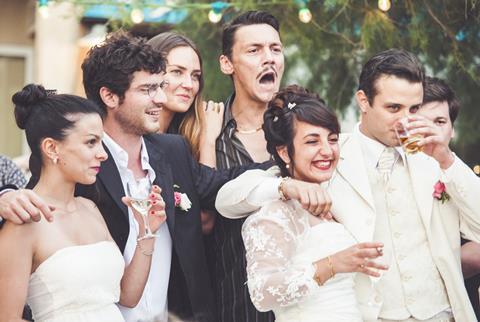Ambitious drama tracks the modern Corsican nationalist movement

Dir: Thierry de Peretti. Fr. 2017. 111mins
If you’ve ever wondered how a nice student from a good family ends up in a Marxist revolutionary cell bent on asserting Nationalist goals against encroaching Mafia-style powers-that-be, A Violent Life (Une Vie Violent), set in Corsican nationalist circles in the late 1990s, is an unsettling and convincing portrayal of the slippery slope of personal conviction.
The Corsican-born director imparts a powerful sense of place
The tight-lipped ancient codes of Corsica as filtered through the last few decades have been little explored on the big screen until now. An ambitious time-hopping tale cast with distinctive-looking but mostly little-known performers, Thierry de Peretti’s second feature — which premieres as a special screening in Cannes Critics Week — will inspire think pieces in French media outlets and should find additional festival berths and maybe more thanks to a relentless accumulation of convincingly tense situations.
Opening words on screen explain that the citizens of Corsica have rankled against covetous and disrespectful outside influence since the island was sold to France by Genoa in 1768. In the 1990s political resistance faced lethal opposition from criminal elements as the tentacles of organised crime — presumably abetted by respectable people in high places — built up increasingly objectionable ways of putting pressure on local residents and resources.
And so, intent on preventing their beautiful island from going the way of Sicily or the French Riviera, certain people decided to fight back. Suffice it to say, their model wasn’t Gandhi.
As the film opens in Paris in 2001, Stephane (Jean Michelangeli) seems to have a comfortable bourgeois life. But he’s on the mainland for a reason and, against his mother’s wishes, resolves to return to Bastia for a funeral.
The film flashes back to when Stephane was just a typical apolitical young man attending university. His path toward armed resistance began by being born Corsican, but intensified when he agreed to transport a duffel bag full of weapons for friends. Unfortunately the weapons in question were used in terrorist attacks and traced to him. Stephane is sentenced to prison where he remains stoic and bookish but is singled out by older, not at all intellectual men who supplement his thinking and raise his consciousness.
Early on we’re shown a shockingly expedient scene in which men are executed point blank and set on fire while impassive agricultural workers tend to fruit trees mere yards away. It’s a powerful indication that minding one’s own business is de rigueur. Certain real estate developers get to build with impunity and certain men get to slaughter other men in the proverbial broad daylight without apparent consequences. The violence plays like frontier justice but what constitutes the frontier keeps evolving.
Stephane is smart enough to know that the situation he finds himself in is not what he imagined when he set out to correct the imbalances bred by colonisation. His friends and comrades, girlfriend and mother are all possible targets.
Particularly blood-chilling is a scene in which Stephane’s mother sits silently as five other middle-aged women share a meal in a flowered yard and blithely reminisce about how this or that youngster got himself shot in a vendetta or mowed down or blown up because “the rules are the rules.” They chalk up the high mortality rate among the island’s youth to wanting money and the flashy stuff it can buy without working for a living. Their sardonic, matter-of-fact tone is genuinely disturbing since we know that Stephane’s motivations have been anything but financial.
The Corsican-born director imparts a powerful sense of place, aided by fine period details and an ever-simmering sense of dread.
Production companies: Les Films Velvet, Stanley White, Arte France Cinema
International sales: Pyramide International, avalentin@pyramidefilms.com
Producers: Frédéric Jouve, Marie Lecoq, Jean-Etienne Brat, Delphine Léoni , Olivier Père, Rémi Burah
Screenplay: Thierry de Peretti, Guillaume Bréaud
Cinematography: Claire Mathon
Editor: Marion Monnier
Production design: Toma Baquéni
Main cast: Jean Michelangeli, Henri-Noël Tabary, Cédric Appietto, Marie-Pierre Nouveau, Délia Sepulcre-Nativi























